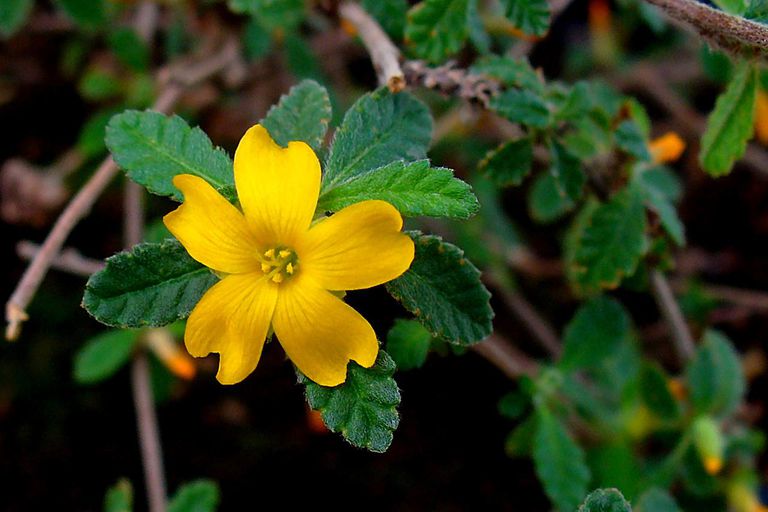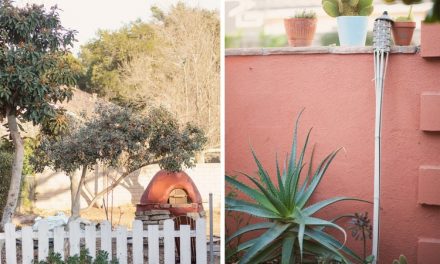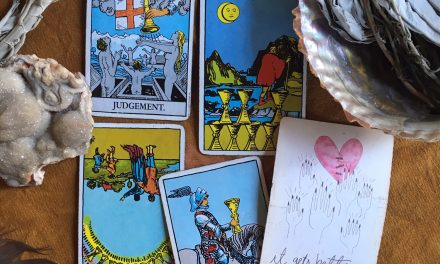Herban Love| Getting to Know the Damiana Plant
Download Damiana Herban Love article

If you’ve heard of Damiana before, then I bet you know it as a potent aphrodisiac. Yet, there is much more to this beautiful plant than what it can do for stamina and virility. Damiana is a traditional plant that has been used for centuries in several Latin American cultures, including Mexico, Central America, and parts of South America, and it was highly revered by the Mayans, Aztecs, and Guaycura for centuries. This bushy, perennial shrub grows in dry, semi-arid climates with high elevations and is found alongside other common desert plants like chaparral (creosote), which is another medicinal plant that is highly revered for its antibacterial and antiviral properties. Although Damiana also possess similar properties to help fight off infections, its strength can be found as a warming circulatory stimulant that can help ease a variety of stagnant, boggy dispositions. Its flavor can described as sweet and warming with a hint of spiciness that is unique to the plant. Many parts of Mexico continue to use Damiana as a whole body tonic, drinking the leaves and flowers as a daily tea.
Other uses for Damiana include increasing blood flow and regularity to delayed or stagnant menses, stimulating a sluggish digestive system, and helping improve a boggy mood. Damiana is a wonderful remedy for those who tend to feel stuck, scared, timid or unsure and are inclined to withdraw into themselves, making it an excellent nervine remedy that both relaxes and stimulates the mind without over stressing it. It also brings about a calming mindset that allows you to focus on the present instead of the abstract and what-ifs, while at the same time strengthening your confidence and mental clarity.
Damiana is an excellent herbal ally for the moist Kapha and airy Vata dispositions but may not be suitable for most fiery Pitta types because of the plant’s inherent warming and stimulating qualities (for more on these Ayurvedic terms, see previous Herban Love posts (HYPERLINK). There are many fun ways to incorporate Damiana into your daily practice, including using as a tea, tincture, elixir, powder (capsulated or sprinkled on foods), or as a smoking blend. I also favor infusing it with rose petals in a honey and adding it to my daily tea or drizzled over yogurt. Yum!
Please be mindful when using this powerful plant, as high doses have been linked to seizures and liver disfunction. It is recommended to take at low doses once or twice a day for up to one week at a time, then take a weeklong break before resuming again. Also be aware that this plant is federally unregulated in the U.S. but has been made illegal in the state of Louisiana when used for human consumption (which includes all forms of plant medicine discussed here. Sorry, Louisiana). Please see our plant profile for further contraindications and precautions you should take when using this plant.

Damiana Plant Profile
Common Name: Damiana
Other names: Old Woman’s Broom, Mexican Damiana, Herba de la Pastora,
Scientific Name: Turnera diffusa
Type of Plant: Low perennial shrub with woody stems and gnarly roots
General Habitat Preference: Dry, arid, sunny and hot climates. Indigenous to Mexico, Central and South America and can be grown in the Southern United States (Southern California, New Mexico, Arizona and Texas) zones 9-11. Can be carefully grown in containers in colder zones that receive enough sun during warmer months as long as it is brought indoors during winter.
Parts Used for Medicine: Mainly leaves and flowers but occasionally roots and stems
Constituents: Tannins, resins, up to 0.9% volatile oils, including calamine, gamma-cadinene, thymol, p-cymene, 1,8-cineole and alpha- and beta-pinene.
Organ affinities: Nervous system, Reproductive system, Digestive system and Respiratory system
Herbal Actions: Nervine, Carminative, Aphrodisiac
Herbal Energetics: Bitter, sweet, warming and drying
Medicinal Uses: Nervous system and reproductive tonic, digestive stimulant/laxative, aphrodisiac, anxiolytic and mood stimulator
Preparations: Teas, tincture, powders/capsules and smoking blends. Can also be infused in honey for a gentler formulation. Tea: Infuse 1-2 tsp in hot water for 10 minutes. Tincture: Take 1-2 ml twice a day
General Precautions/Contraindications: Avoid large doses, as there have been some cases of seizures with heavy use, especially if using as a smoking blend. Avoid taking in periods of more than a week, due to concerns of liver damage. One week on and one week off is recommended to avoid overuse. Because of its ability to move energy and blood in the pelvis, damiana is best avoided during pregnancy.
For more information and products visit








